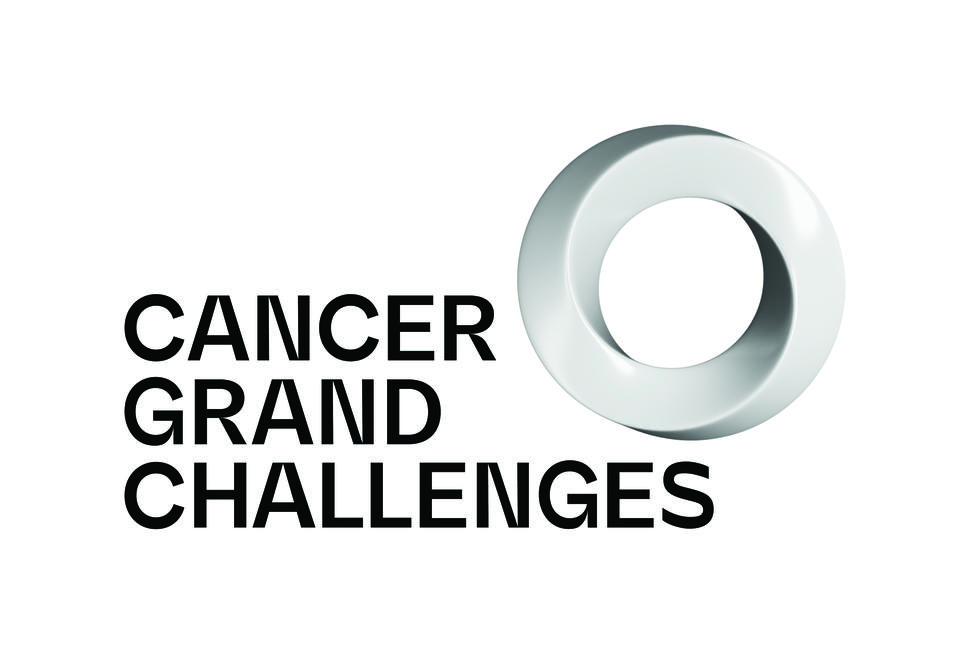Cancer Grand Challenges selects five new global, interdisciplinary teams to take on four challenges
- Posted:
240-760-6600

Cancer Grand Challenges has selected five new global research teams that will address the following challenges in cancer: reducing cancer inequities, understanding the mechanisms of early-onset cancers, developing drugs for solid tumors in children, and broadening our knowledge about how T cells recognize cancer cells. The winning teams were announced at the Cancer Grand Challenges Summit on March 6, 2024, in London.
Cancer Grand Challenges is a global funding initiative cofounded in 2020 by the National Cancer Institute (NCI), part of the National Institutes of Health, and Cancer Research UK to advance bold cancer research. This year’s awardees span 12 countries and 45 institutions and include more than 67 investigators and researchers. Each team will receive up to $25 million over five years.
"Cancer Grand Challenges is a leader in promoting novel international collaborations to take on some of the biggest challenges in cancer research," said Dinah S. Singer, Ph.D., NCI deputy director for scientific strategy and development. "The collaborative nature of Cancer Grand Challenges allows us to develop and support innovation and drive progress on a global scale."
“Together with our network of visionary partners and research leaders, Cancer Grand Challenges unites many of the world's brightest minds across boundaries and disciplines and aims to overcome cancer’s toughest problems,” said David Scott, Ph.D., director of Cancer Grand Challenges, Cancer Research UK. “With this investment, we continue to grow our global research community and fund new teams that have the potential to surface discoveries that could positively impact cancer outcomes.”
The four challenges and five interdisciplinary teams include:
- Early-onset cancers: Early-onset colorectal cancer—defined as colorectal cancer arising in individuals younger than 50 years—is an emerging global concern. One team aims to address this challenge by understanding the pathways, risk factors, and molecules involved in the development of this disease. Their vision is to understand and ultimately try to reverse the network of causal factors throughout the life course that disrupts normal biological processes to promote early-onset colorectal cancer. The team is led by Andrew Chan, M.D., M.P.H., Massachusetts General Hospital, Boston, and Yin Cao, Sc.D., M.P.H, Washington University in St. Louis.
- Cancer inequities: Inequities in cancer prevention, screening, and treatment lead to disparities in cancer incidence and mortality and are a major public health concern. One team aims to build an unprecedented resource that will comprise a comprehensive measurement of social, environmental, genetic, and biological factors in selected populations. This resource can be used to help define the causes of disparate outcomes in these populations. The team will focus on prostate, breast, and pancreatic cancers in the global African diaspora. The team is led by Melissa Davis, Ph.D., Morehouse School of Medicine, Atlanta.
- Solid tumors in children: Cancer remains a leading cause of death due to disease among children globally, and outcomes for some childhood cancers have not improved in more than 30 years. Treatments for solid tumors in children still rely on decades-old chemotherapies and often radiation therapy. Two teams will take on this challenge. The teams will use protein degradation strategies to target previously undruggable drivers of childhood cancers. A drug or drugs that could emerge from these programs could revolutionize the field and transform the lives of children with solid tumors.
- One team is led by Stefan Pfister, M.D., Hopp Children's Cancer Center Heidelberg, Germany.
- The other team is led by Martin Eilers, Ph.D., University of Wurzburg, Germany, and Yael Mosse, M.D., Children’s Hospital of Philadelphia.
- T-cell receptors: T cells are central players in the immune response, and the development of immunotherapies is transforming the treatment landscape for some cancers. Yet, their effects are not universal across cancer types and patients. Understanding how T-cell receptors recognize antigens is critical if the full potential of antigen-specific immunotherapy is to be realized. One team aims to predict what T cells recognize in a patient’s tumor. Insights gained could have implications beyond cancer—for example, in infectious disease, autoimmunity, and allergy. The team is led by Michael Birnbaum, Ph.D., Massachusetts Institute of Technology, Cambridge.
The five winning teams were selected from 176 interdisciplinary, global teams that submitted bold ideas to take on nine new challenges announced by Cancer Grand Challenges in March 2023. The Cancer Grand Challenges scientific committee, with assistance from a patient committee, reviewed and recommended a list of finalists to Cancer Research UK. NCI and Cancer Research UK further considered the innovative ideas and selected a shortlist of 12 teams that received seed funding to develop their ideas into full proposals.
To date, Cancer Grand Challenges has provided funding to more than 1,200 investigators, and collaborators on 16 teams from across the world are currently taking on 13 challenges. For more information about the Cancer Grand Challenges program, visit https://cancergrandchallenges.org or https://www.cancer.gov/cancer-grand-challenges.
About the National Cancer Institute (NCI): NCI leads the National Cancer Program and NIH’s efforts to dramatically reduce the prevalence of cancer and improve the lives of cancer patients and their families, through research into prevention and cancer biology, the development of new interventions, and the training and mentoring of new researchers. For more information about cancer, please visit the NCI website at https://www.cancer.gov/ or call NCI’s contact center, the Cancer Information Service, at 1-800-4-CANCER (1-800-422-6237).
About the National Institutes of Health (NIH): NIH, the nation's medical research agency, includes 27 Institutes and Centers and is a component of the U.S. Department of Health and Human Services. NIH is the primary federal agency conducting and supporting basic, clinical, and translational medical research, and is investigating the causes, treatments, and cures for both common and rare diseases. For more information about NIH and its programs, visit nih.gov.